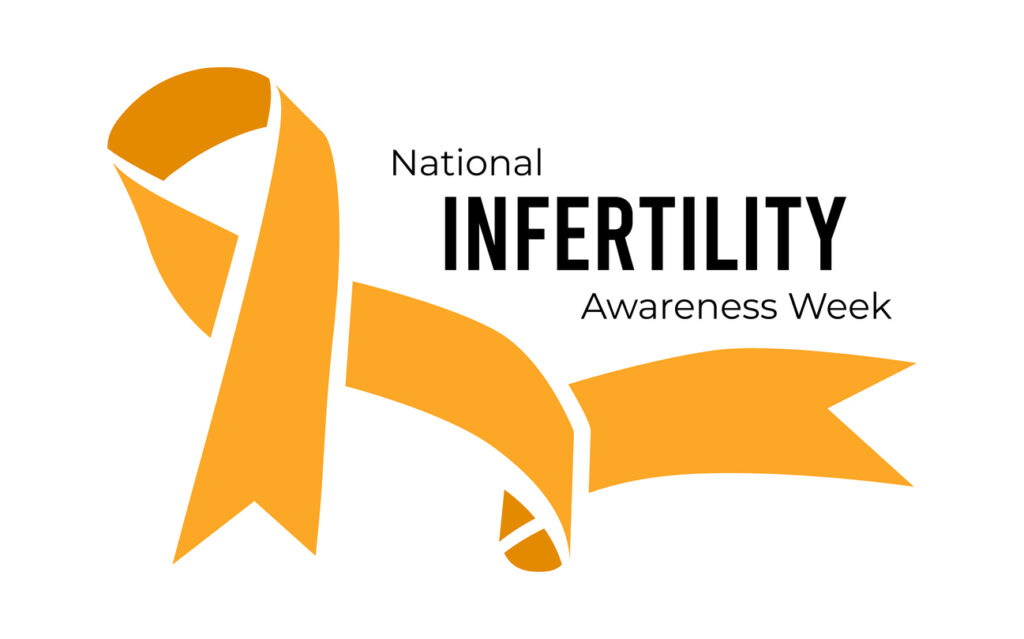One cervical cancer survivor sat down with Cervivor to share her story, how she navigated infertility, and what that looked like for her journey.

Can you tell us a little bit about your age and what your diagnosis was?
I was diagnosed with clear-cell cervical cancer when I was 24. This was ten years after being diagnosed with an unrelated childhood cancer, Hodgkins Lymphoma. You think you get hit once and it won’t happen again, but boy was I wrong. My oncologist said that the cervical cancer diagnosis was so rare, they were unsure of how I got it.
What did treatment look like for you?
I was given a couple of options for treatment. I had just gotten engaged several weeks earlier, so that definitely influenced my decision for treatment.
My first option was to get a hysterectomy, totally remove my uterus, but leave my ovaries to preserve my fertility and hormone function. This was the option most of my doctors recommended to treat this type of aggressive cancer. They said I would possibly need radiation after depending on what they found when they went in.
The second option was to go through chemotherapy and possibly radiation to shrink the tumor, and then have a surgical intervention, a trachelectomy, to remove my cervix and the tumor. The doctors said that during this surgery if cancer margins were not met, I may have to get a hysterectomy. They also were unsure if the chemo would even work since this cancer was rare and aggressive.
I ended up choosing the first option and I underwent a vertical (open, not laparoscopic) hysterectomy, and they moved my ovaries up, out of the field of radiation to preserve my fertility. Prior to this surgery, the doctors allowed me to delay a couple of months so that I could go through an egg retrieval and freeze my eggs.
How did you learn that you were going to be faced with infertility?
Upon diagnosis, it was pretty clear that I would have some sort of infertility, either no uterus, or no cervix depending on the treatment option I went forward with.
I will say, that after processing and going through all this, I (or we as a couple) knew going into family planning that we would have challenges and would either have to adopt or use a surrogate. 1 in 4 couples go through infertility and they have working ‘parts’. I always said that at least we kind of knew going in vs. trying for a year or more and then having to seek out help from fertility doctors. We knew and were able to prepare ourselves for this process.
What did you do to help yourself through those emotions?
My fiancé and my family were really my emotional soundboards at the time. I did a lot of crying. I tried to get out of the house and just ‘forget’ for a little bit. At the time I was working in healthcare with women going through high-risk pregnancies, and that was really hard to be around. I had some time off of work, which definitely helped clear my head. The hikes, walks, friends, and family really kept me going.
Is there anything you would want anyone else facing these emotions to know?
You are not alone. It sounds cliche, but you are not. I actually recently spoke to a young single woman who has to have a hysterectomy for medical reasons too and we shared our stories and our journeys and it was just nice to connect with someone who understands exactly what you are dealing with.
Reach out to local organizations, or even your doctor as they may know other patients who are open and willing to share and connect!
I will also say, to ask your doctor about the pros and consequences of any treatment or decisions you make. I froze my eggs soon before surgery, to be able to use them later on. Nobody encouraged us to freeze embryos instead, which have a much higher rate of survival after thaw. The focus then was on the cancer and it was very rushed. That is a whole other story too, but had all that been transparent, our course of action, and chances of starting our family earlier/differently, would have been altered. When I spoke to my doctor about this after the fact, she made a point that she as an oncologist was acting to save my life and treat the cancer, they didn’t think about the after and the long-term issues or effects on my fertility.
Can you share where you’re at in your journey now?
Thank God I have been cancer free for over four years. I have since gotten married, and we are so blessed to have welcomed our first child into the world via an amazing surrogate. This was not an easy process, but we are so grateful to her and her family for putting their lives on hold so we could start our family. There were so many bumps and decisions along the way; picking an agency to work with or to go ‘independent’ and find our own surrogate, matching with her, all the legalities that we had to go through, emotions, failed treatments, rude comments, time waiting, and the stress and emotional toll of not carrying my own child. I could talk for hours about that all, but with the grace of God, we did it! When they say it takes a village to raise a child, I would say it also does to bring one into this world.
Read more Cervivor stories like this one on our website here. Are you a cervical cancer patient or survivor? Share your story with us today!